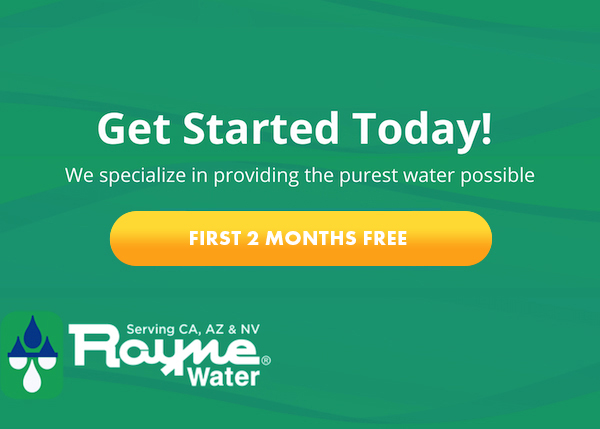Author: Ken Christopher | 9 min read | Apr 21, 2020
Do you need a solution to your hard water problems but are having trouble sorting through the available water conditioners on the market? A no salt water conditioner can be a great alternative to salt-based water softening systems , but choosing between systems can be difficult.
Not all water conditioners will help reduce the impact of hard water around your home. Many water conditioners filter out other contaminants like chlorine and chloramine, but don’t affect water hardness. Understanding the difference between water conditioning systems and their capabilities is essential for finding the best water conditioner for your needs. In order to help you find the best salt free water conditioner , we’ll explore what you should look for in a water conditioner and what you should expect from one in terms of water hardness, flow rate, and more.
You may be asking yourself, “ what is a water conditioner ?”. Water conditioners are an alternative to water softening systems, but they offer very different results. Water conditioners are a water treatment system that removes unwanted substances from your water, including lead, chlorine, chloramines, and volatile organic compounds (VOCs).
In contrast, water softening systems are used to remove hard minerals like calcium and magnesium from water. These minerals cause scaling, soap scum, and many other hard water problems around your home.
Water conditioners are a salt-free alternative to water softeners. How does a water conditioner work ? Different water conditioners work in different ways. The Best Water Conditioner for reducing the impact of hard water around your home uses a substance known as template-assisted crystallization (TAC) media to physically alter the structure of the minerals in your hard tap water through a process known as nucleation. Specifically, the minerals in water conditioned by these systems have been altered to be crystalline in structure, which ensures they won’t attach and cause buildup to surfaces and fixtures in your home. Calcium and magnesium are two hard minerals that tend to contribute to such a build-up.
While some water conditioners offer a few softening benefits, the primary benefit of a water conditioner is to remove disinfectants used in water treatment such as chlorine, chloramines, VOCs, lead, and organic gases. These substances alter how your water smells and tastes. Conditioned water has had these substances removed, resulting in water that smells cleaner and tastes crisp.
How long does the water conditioner take to work ? Water conditioning happens quickly. As water passes through the water conditioner any harmful chemicals such as chlorine and chloramines are removed. This makes water conditioners capable of providing on-demand conditioned water and providing as much conditioned water as you need. We’re talking gallons and gallons of safe drinking water made readily available.
You may have heard of electronic water conditioning. If you are curious about an electronic water conditioner do they work to reduce scaling, the answer is maybe. The existing research on electronic or magnetic water conditioners is conflicted. For a home water conditioner you know will work, look for units with proven effectiveness.

Water conditioners and water softeners function in fundamentally different ways and produce very different results. Whereas water softeners are used to remove hard minerals from water, water conditioners are primarily used to remove unwanted chemicals that alter the taste or smell of your water.
Water softeners achieve this by removing the mineral ions from the water and replacing them with sodium ions – a process known as ion exchange. In contrast, salt free water conditioners use different methods of achieving their goal. Some water conditioners utilize activated carbon to trap unwanted chemicals, while others also incorporate TAC media to provide some soft water benefits.
Both water conditioners and water softeners are considered a point-of-entry (POE) water supply treatment solution. They are installed where your water line comes into your home so that they are able to treat water before it is distributed throughout your home.
Here are a few of the key ways water conditioners are different from water softeners:
If you aren’t sure whether a tap water conditioner or water softening system is right for you, it may be helpful to schedule a water quality test. A water quality test will tell you what contaminants are present – chlorine, chloramine, heavy metals – and how hard your water is. Schedule a test with Rayne Water today so that one of our technicians can help you assess your water treatment needs and find the best treatment solution for you. Softened or conditioned water is not too far away!
Whether you need a solution for dealing with the effects of hard water around your home, or are looking to remove chlorine and other chemicals and gases from your water, there is an effective system for you. Water conditioners are a salt-free alternative to water softening systems which are used to remove lead, chlorine, chloramines, and other substances that give your water an unpleasant smell or taste.
While most water conditioners won’t provide the benefits of softened water, there are some hybrid systems which will soften and condition water. At the same time, water conditioners like the Spartan 1000/1250 use TAC media to protect against scaling. So no matter what type of water treatment system you need, there’s a solution at Rayne available for you!
To learn more about water conditioners , please contact Rayne Water today. Our knowledgeable staff can help you explore systems that transform the hardness of water and find a solution that fits your needs! It’s time to enjoy clean, soft water. And lots of it!
